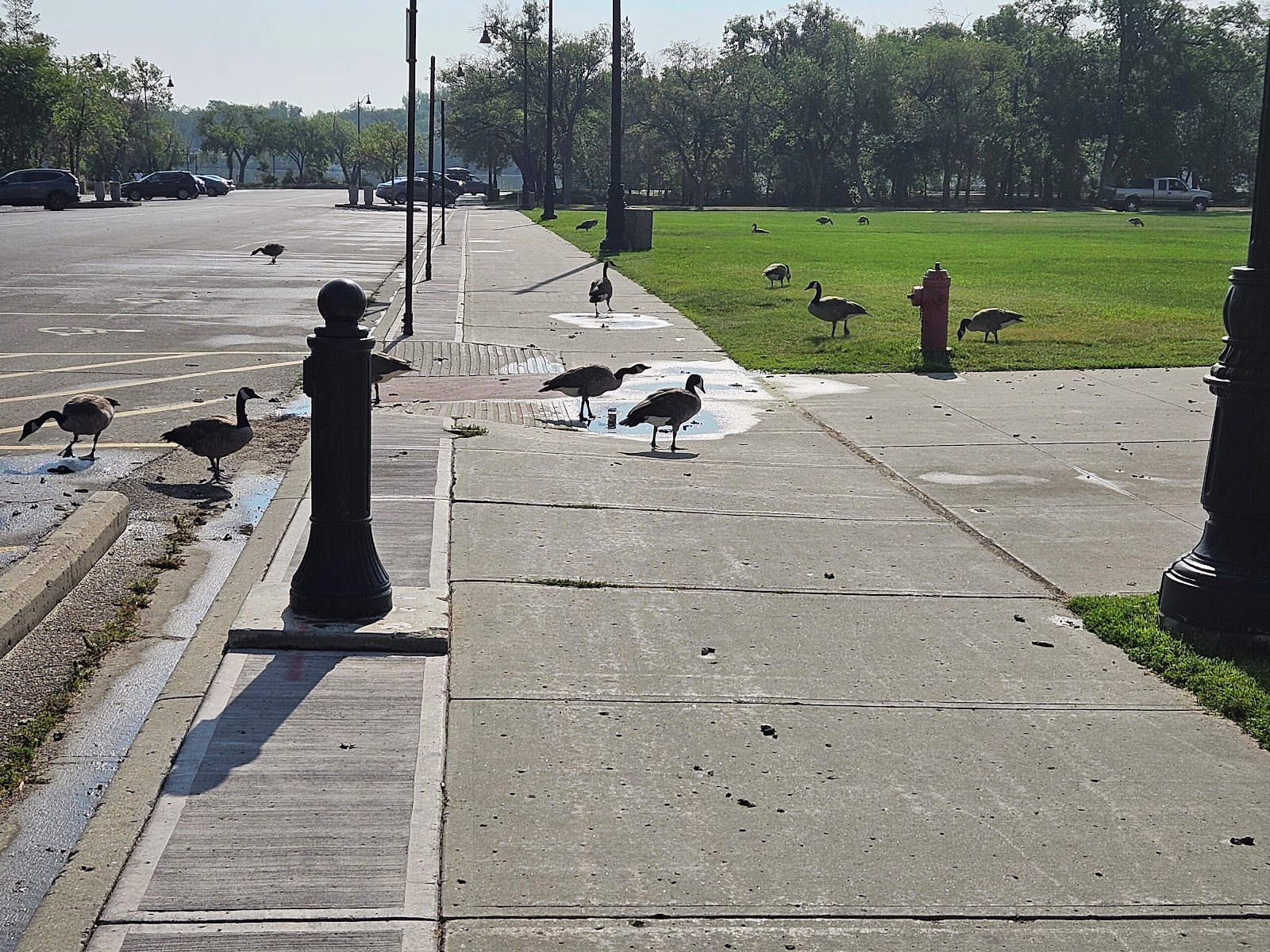Our plan has been to set out on Monday to drive across the country, as
I've explained. Our last commitment was to take place on Sunday, which has been cancelled; so we've moved our departure date up. We leave tomorrow morning, about 14 hours from my writing this.
I have a laptop I'm taking along, and I hope to write every day ... but those who have travelled know that sometimes, a day just doesn't work out. Still, I'm going to try. I'm not going to pinpoint my location, but I'll give a description of my journey and possibly a map, if that doesn't prove impractical. It's not so much that I think my readers have any interest in the journey, but for myself, so I can look back at some point when I'm 80, I'd like to keep a record.
While I'm gone, I'm setting down my book. I'm working my way through cloth fabrics, which I've almost completed. There's just three left to describe: jute, ramie and sisal. I've worked my way through all the fibres, including those three, along with hemp, silk, angora, camelhair, karakul, mohair, wool, flax and cotton; the raw, cleaned fibres each have a price. The fibres are then described as a yarn (each with a price) and then as cloths, including cotton cloth, calico, chambray, muslin, linen cloth, cambric, damask, lace, guipure, sailcloth, wool cloth, felt, karakul felt, saragoca, serge, worsted, mohair cloth, camelhair cloth, angora cloth, silk cloth, organza, satin, velvet and canvas. Each with a price.
The book is 84 pages (8.5 x 11), and 75,000 words, a little less than 3/4 the size of How to Run and about 42% as long as I expect the book to be. My next efforts will be to briefly discuss dyed cloth (leaving "dye" itself to later in the book where it will appear in the "alchemy" section), and then list the possible clothing types with descriptions. This includes a small section on how to use the information given in the book to "design" your own clothes. There's a bit on embroidery, and then it's into a section on hides, skins, leather and finally rope. That'll be the end of the textiles I'm working on. Naturally, there'll be more than one type of leather.
All in all, fun times.
Even at a good pace, the degree of research and the grittiness of the material make it impossible for me to move faster than I am. It's been explained to me by friends that descriptions of the book like this are a form of cruelty, as you cannot have the book until I'm finished ... and until then, it's better for you not to think about the book at all.
This "cruelty" reminds me of hundreds of arguments I've had over the centuries of my life with non-writers or would-be-yet-not-productive-writers about perspective. The argument on their side goes: "it isn't the writer's perspective that matters when interpreting a book, but the reader's." I'm always on the other side of this one.
As cruel as it might be to wait for a book, it's nothing like the cruelty of having to write one, not knowing if it'll ever be finished, or if it'll be good, or if it'll turn out to be a terrible waste of time, and evidence of the author being a piece of shit. The enormous weight of this book is upon me. I'm the only one at present who can clearly see how BIG it has to be. I'm the only one with comprehension enough to fully understand the enormity of the task. I'm the one with the vision necessary, and the time taken, to patiently scrawl this thing out one paragraph at a time. Some paragraphs are fun and easy and pour out like fine wine. Others, however, really, really aren't, and don't. Sometimes, my teeth are gritted as I write. Sometimes, I have to efface half a page or more because it's not good enough, and go at it again. And once in this damndable process now, I've lost 2500 words that were overwritten, so that the research had to be commenced as well.
I can accept that the book may not be as good as I'd hoped for, or has failed on the writing and editing, or is just a clumsy boondoggle that failed to make itself beloved. I'm working not to have any of those things be true, but if they are, that's on me. That's my fault. It'll be my failure. That's what I mean when I say, the weight of the book is on me.
But the idea that someone out there thinks that, despite their not having been part of its making, and despite having done nothing except read it, their opinion about what the book meant to do, or achieve, is more accurate than mine ... that's ... that's ...
I must turn to a quote from Teddy Roosevelt, quoted in Brene Brown's recent Netflix special,
“It is not the critic who counts; not the man who points out how the strong man stumbles, or where the doer of deeds could have done them better. The credit belongs to the man who is actually in the arena, whose face is marred by dust and sweat and blood; who strives valiantly; who errs, who comes short again and again, because there is no effort without error and shortcoming; but who does actually strive to do the deeds; who knows great enthusiasms, the great devotions; who spends himself in a worthy cause; who at the best knows in the end the triumph of high achievement, and who at the worst, if he fails, at least fails while daring greatly, so that his place shall never be with those cold and timid souls who neither know victory nor defeat.”
I'm sorry I hadn't encountered that quote in High School, or University. I'm sorry I never got to beat any of my literature professors over the head with it. I'm sorry I didn't have a t-shirt made so I could wear it when I used to go to various writer associations and workshops, when I thought those were helping me be a better writer.
Sorry I had to get that off my chest. Just now, getting ready to go, I'm feeling it's a good time to clean house.
For example, I'm considering there might be a necessity for shuttering this blog. This isn't a threat, or even a plan, but something I feel I'm being forced into. See, I'm not even sure there are more than a handful of people still reading me. My analytics tell me there's between 2,000 and 2,500 page views a day, yet they also tell me that in the last three months, I've had 163 comments. Half of which are mine.
I suspect a lot of my "views" are bots. Most of my views.
Virtually every person I know — and nearly everyone I know is younger than me — tells me that blogs are dead. My own observations seem to bear that out. Nearly every other blog I see related to RPG are simply pathetic; their authors are churning on precisely the same content they were writing ten years ago, with many of them having chosen a
single blog post that they churn out day after day, with the barest of nuance and the dullest of descriptions, word quantity and quality diminishing into dust. Others churn on about role-playing games they
used to play, that they don't now, but they
think about playing, though they never go, while droning on about how good this or that version of the game they don't play was better than some other version of the same game.
Jeebus. Just the notion that I'm vaguely associated with this dreck is disturbing. One pleasantness of not being on RSS feeds is that my blog isn't found adjacent on multiple lists with these blogs.
I'm being encouraged to accept the inevitable, which would mean moving from script writing to script reading. One of many possible streaming formats, that have a possibility of encouraging new people to hear what I have to say — who haven't, because the very idea of searching for a blog is anathema to them. A new audience. A younger audience, not emotionally locked to role-playing they did in 1992, but still in a frame of mind that they haven't made up yet.
I have my doubts. Speech requires energy, dramatic authority, production value, greater preparation time and familiarity with technology. Some of this I can conjure; most of it I understand; but it would mean the end of sitting down at random and shooting out a thousand words or so off the cuff. But what good is that, if I'm sitting here in an empty room, with words falling off my cuffs onto the internet with all the noise a falling tree makes in an empty forest?
So, change seems in order.
I'd like to know, outside of analytics, who's really here. I understand the resistance to this sort of request. I've made them in the past and it's all crickets. But with this one, I'm pretty serious. I'm writing a book just now that's going to do far better at game cons than online. I'm increasingly in a position to put much more effort to appearing at game cons in the next year. I'm also beginning to feel that JUST writing books might be where I should put all my writing effort into ... as well as into venues, other than this one, where the views might mean something more concrete to me, and my future as a writer.
I've said in the past that I'd be writing this blog into my 90s, and maybe so. But if the present reader wants to see me write more often than once in a fortnight, or once a month, because there's just less reason to give my effort here, when it would be better given somewhere else, this is the time to raise your hand and comment, "here."
When I go to youtube — and that seems inevitable — and spend my writing there, I promise to tell people. So if you want me to quit writing this blog, then just leave your hand on your lap. Don't write "here." Don't do anything.
And if there's actually just six of you reading this, then I'll also know that from the number of "hears" I get. Then I'll just write about my travels in the next three weeks as a diary, and pretend no one's reading it but me.
Most of all, I'll know where to put my effort, and what's a waste of my time. I can stumble anywhere. I can find dust and sweat and blood to cover my face anywhere. I can strive with my deeds, spend myself in worthy cause, dare greatly ... anywhere.
This is your chance to convince me to go on doing that here.




.jpg)



.jpg)


.jpg)









